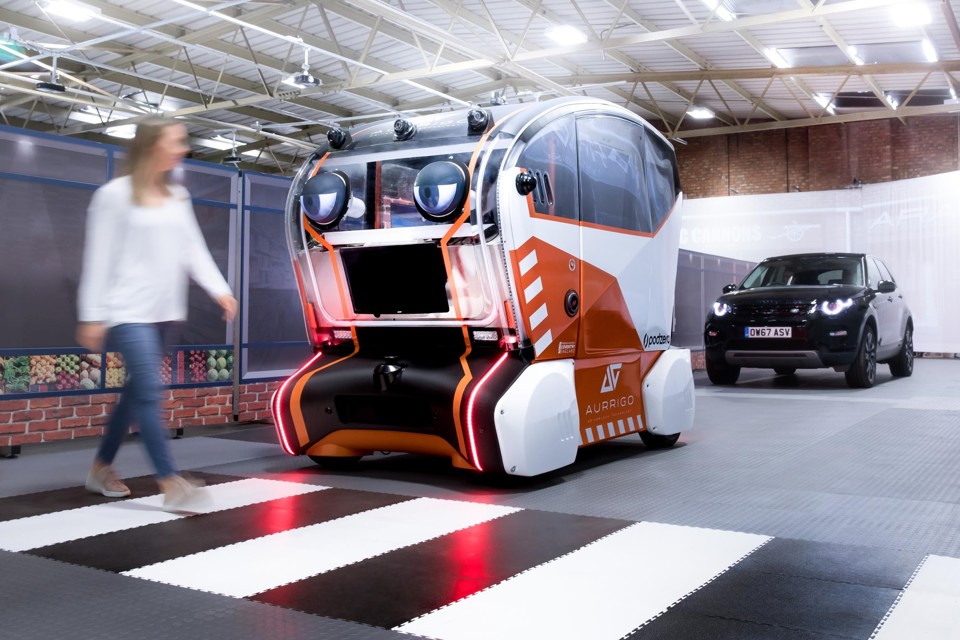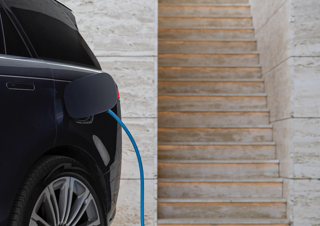Jaguar Land Rover is studying how autonomous vehicles will interact with pedestrians by using virtual eyes to interact with them.
The technology will allow the autonomous pods to make eye contact with pedestrians, to signal intent.
As part of the engineering project, Jaguar Land Rover has enlisted the help of a team of cognitive psychologists to better understand how vehicle behaviour affects human confidence in new technology. The trust trials form part of Jaguar Land Rover’s government-supported UK Autodrive project.
Pete Bennett, future mobility research manager at Jaguar Land Rover, said: “It’s second-nature to glance at the driver of the approaching vehicle before stepping into the road. Understanding how this translates in tomorrow’s more automated world is important.
“We want to know if it is beneficial to provide humans with information about a vehicle’s intentions or whether simply letting a pedestrian know it has been recognised is enough to improve confidence.”
The intelligent pods run autonomously on a fabricated street scene in Coventry, while the behaviour of pedestrians is analysed as they wait to cross the road. The eyes have been devised by a team of advanced engineers, working in Jaguar Land Rover’s Future Mobility division. The pods seek out the pedestrian - appearing to look directly at them - signalling to road users that it has identified them, and intends to take avoiding action.
Engineers record trust levels in the person before and after the pod makes eye contact to find out whether it generates sufficient confidence that it would stop for them. Previous studies suggest as many 63% of pedestrians and cyclists say they’d feel less safe sharing the road with a self-driving vehicle.
The trials are part of a wider study exploring how future connected and autonomous vehicles can replicate human behaviour and reactions when driving. As part of the study, more than 500 test subjects have been studied interacting with the self-driving pods, designed by UK Autodrive partner Aurrigo.

















Login to comment
Comments
No comments have been made yet.